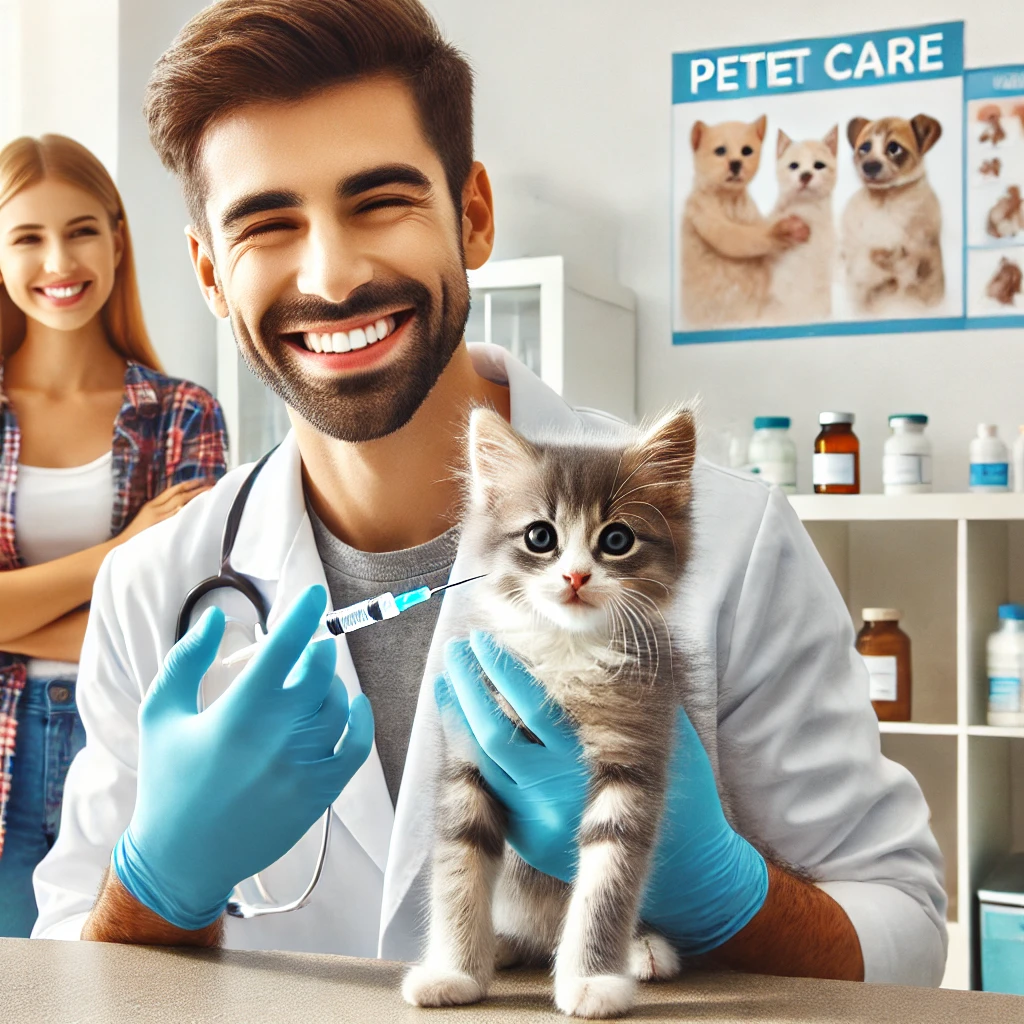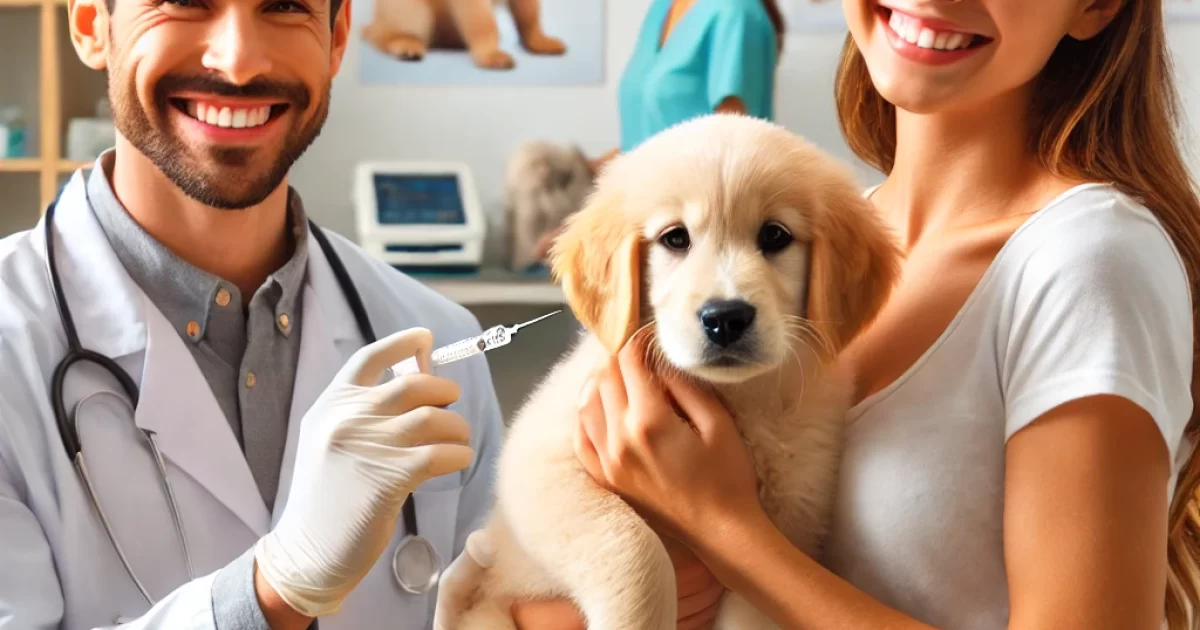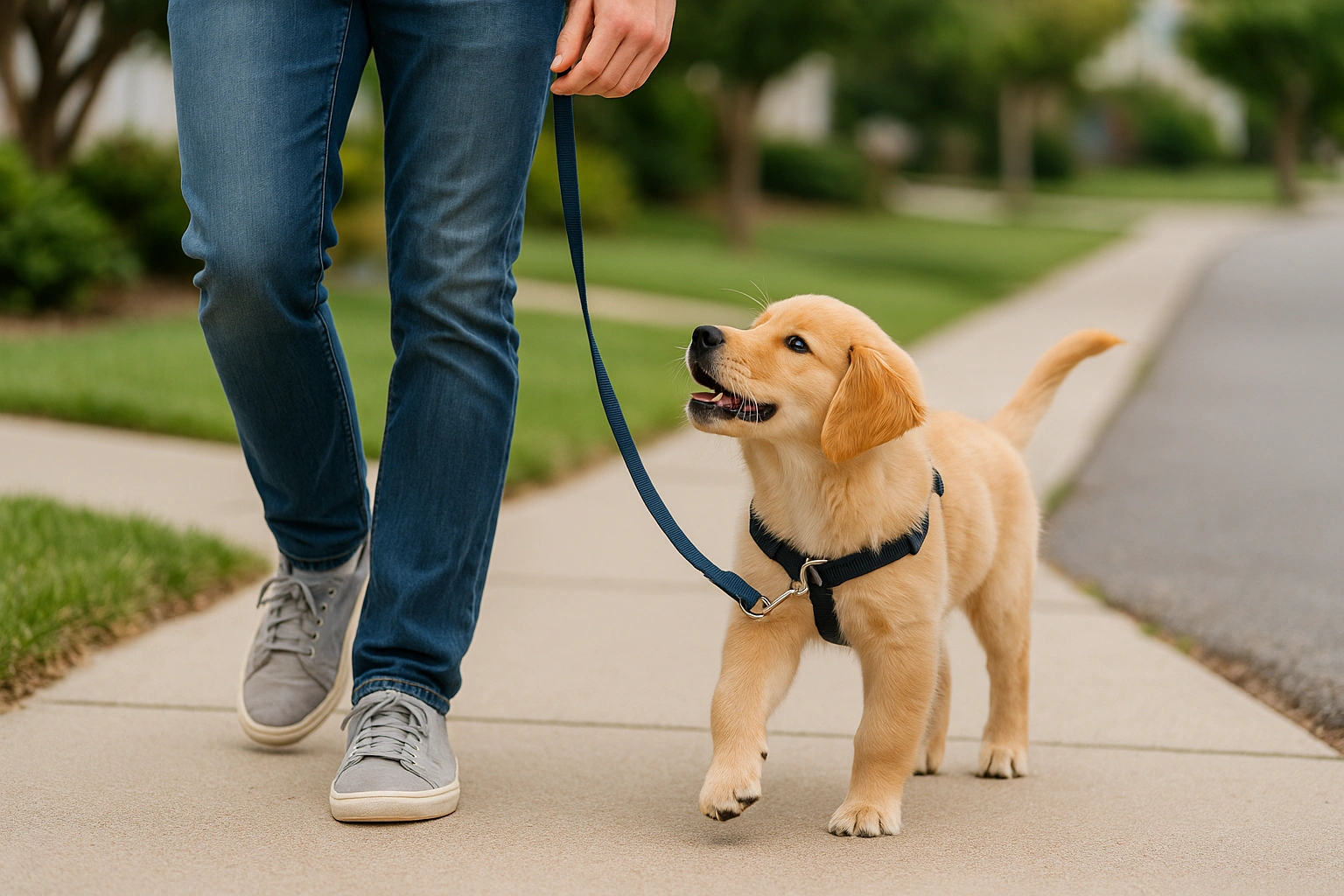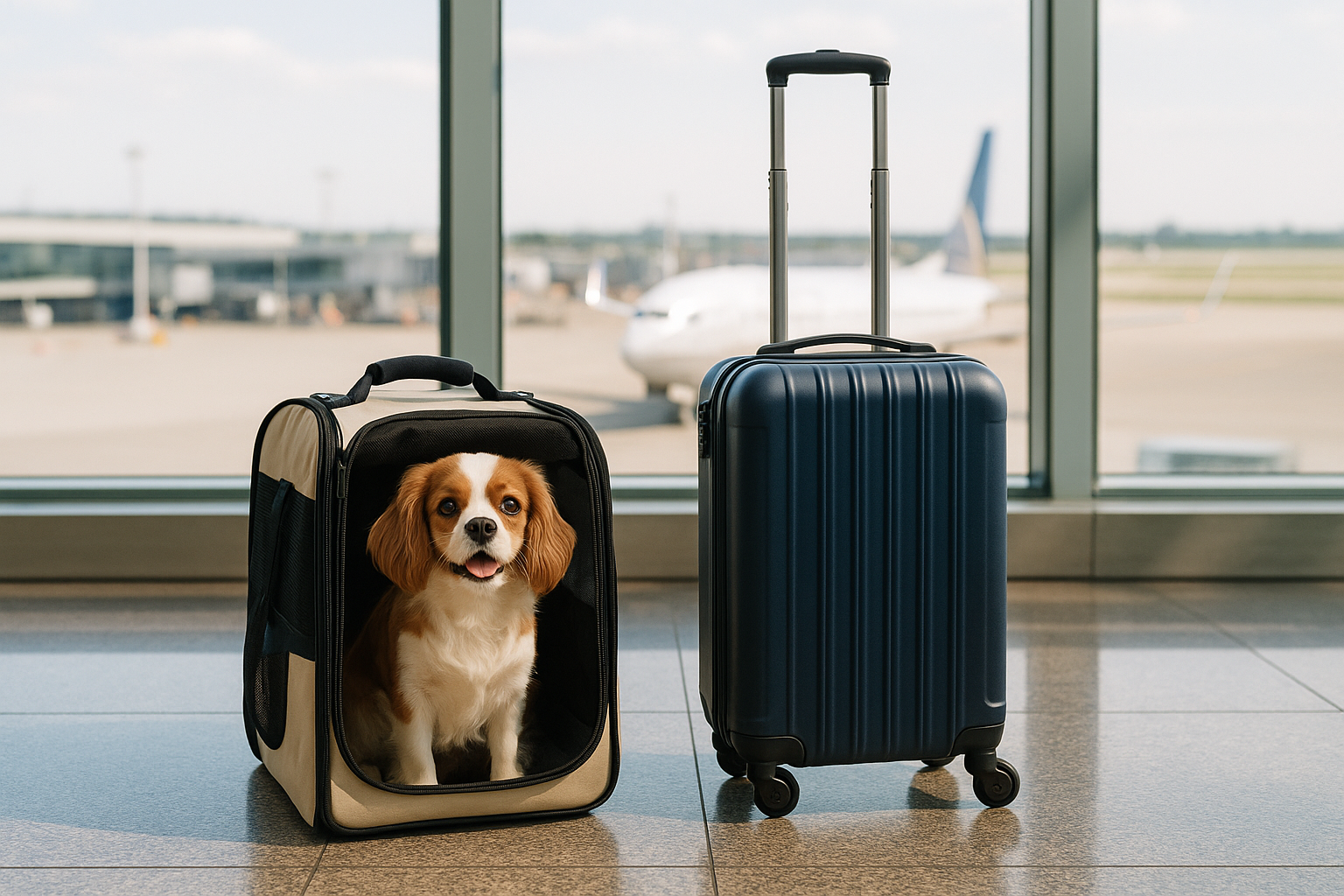Bringing home a new furry friend is an exciting experience! To ensure your puppy or kitten grows up healthy and happy, it’s essential to follow a proper puppy and kitten vaccination schedule and care routine. The first year is crucial for building their immunity against serious diseases. Here’s everything you need to know about puppy and kitten vaccination in the U.S.!
Table of Contents
Puppy Vaccination and First-Year Care🐶
Core Vaccines for Puppies in the U.S.
- DA2PP (Distemper, Adenovirus, Parvovirus, Parainfluenza): Protects against highly contagious diseases.
- Rabies Vaccine: Required by law in all U.S. states and crucial for preventing a fatal disease.
- Core and Non-Core Vaccines: Ensuring your dog gets the right immunizations is key to their well-being.
Puppy Vaccination Schedule
- 📅 6-8 weeks old: First round of core vaccines
- 📅 10-12 weeks old: Booster shots
- 📅 14-16 weeks old: Final booster and rabies shot
- 📅 Annual check-up: Possible booster vaccines based on lifestyle
Optional Vaccines for Puppies
- Bordetella (Kennel Cough Vaccine): Recommended for social dogs that go to daycare, boarding, or parks.
- Leptospirosis Vaccine: Important in areas with standing water or high rodent populations.
- Canine Influenza Vaccine: Necessary for dogs exposed to other pets in crowded environments.
- Lyme Disease Vaccine: Recommended for dogs in high-risk tick areas (e.g., Northeast, Midwest, and Pacific Coast).
Additional Puppy Care
- ✅ Start heartworm prevention by 8 weeks of age (common brands: Heartgard, Simparica Trio).
- ✅ Begin flea and tick prevention (NexGard, Bravecto, Seresto collar).
- ✅ Schedule first vet visit within a week of adoption.
- ✅ Socialize early with positive experiences in safe environments.
Kitten Vaccination and First-Year Care 🐱

Core Vaccines for Kittens in the U.S.
- FVRCP (Feline Viral Rhinotracheitis, Calicivirus, Panleukopenia): Essential protection against severe feline illnesses.
- Rabies Vaccine: Required in many states to protect against fatal diseases.
- Vaccination Plans for Indoor and Outdoor Cats: Tailoring immunization needs based on your pet’s lifestyle.
Kitten Vaccination Schedule
- 📅 6-8 weeks old: First set of core vaccines
- 📅 10-12 weeks old: Booster shots
- 📅 14-16 weeks old: Rabies shot and final core vaccine booster
- 📅 Annual vet visit: Additional boosters if necessary
Optional Vaccines for Kittens
- Feline Leukemia (FeLV) Vaccine: Highly recommended for kittens, especially those going outdoors.
- Chlamydia Vaccine for Cats: Suggested for cats in multi-cat households.
Additional Kitten Care
- ✅ Use flea and tick protection (Revolution Plus, Advantage II).
- ✅ Keep kittens indoors until fully vaccinated.
- ✅ Provide a proper litter box setup for good hygiene.
- ✅ Encourage healthy behavior with scratching posts and interactive toys.
Special Considerations for Pet Owners in the U.S.
Legal and Health Requirements
- Microchipping for Pets: Highly recommended and often required for adoption.
- Spay/Neuter Your Pet: Recommended at 4-6 months to prevent overpopulation and health issues.
- Best Pet Insurance Options: Many owners opt for insurance (Healthy Paws, Trupanion) to manage veterinary costs.
- U.S. Pet Laws and Regulations: Some states have leash laws, breed restrictions, and specific pet licensing requirements.
❓ FAQ – Frequently Asked Questions
Do indoor cats need vaccines?
Yes! Even if your cat stays indoors, they can still be exposed to airborne viruses, and rabies vaccination is legally required in many states.
Can I delay my pet’s vaccinations?
It’s not recommended. Delaying vaccines can leave your pet vulnerable to life-threatening diseases.
Are vaccine side effects common?
Mild side effects like slight fever or soreness are normal. Severe reactions are rare but should be reported to your vet immediately.
How do I find a low-cost vaccination clinic?
Many shelters and non-profits offer affordable options. Check with the ASPCA or Humane Society for resources in your area.
Why is Puppy and Kitten Vaccination Important in the First Year?
Puppy and kitten vaccination is essential during the first year to protect your pet from serious diseases like rabies, distemper, and parvovirus in puppies, as well as feline leukemia and panleukopenia in kittens. Vaccinating at the right time helps build their immune system and ensures they grow into healthy adult pets. Always follow a veterinarian-approved puppy and kitten vaccination schedule for the best protection.
Useful External Links 🌍
- 🔗 American Veterinary Medical Association (AVMA) – Vaccine Guidelines: www.avma.org
- 🔗 Centers for Disease Control and Prevention (CDC) – Pet Vaccination: www.cdc.gov
- 🔗 American Kennel Club (AKC) – Dog Vaccination Guide: www.akc.org
- 🔗 American Association of Feline Practitioners (AAFP) – Cat Health Resources: www.catvets.com
🐾 Ensuring your pet gets the right vaccinations is the best way to set them up for a lifetime of health and happiness! Is your puppy or kitten up to date on their vaccines? Let us know in the comments! 🐶🐱💉
📢 We’d love to hear from you! Have you already started your puppy and kitten vaccination schedule? What questions or experiences do you have about vaccinating your pet? Share your thoughts in the comments below! 🐶🐱💬
Content for you to keep up with your pet’s health
🔗How to Boost Pet Immunity: Simple Tips for a Healthier Companion
🔗Pet Dental Health Tips: Keep Your Furry Friend’s Smile Bright
🔗4 Essential Types of Pet Insurance: Pros and Cons 🐾

Passionate about animals and an expert in pet behavior, I created Pawfect Life to help you better understand and care for your companion—whether they have fur, scales, or feathers. Here, I share practical tips and reliable information to ensure a happier, healthier life for your pet. Let’s embark on this journey together! 🐾✨






